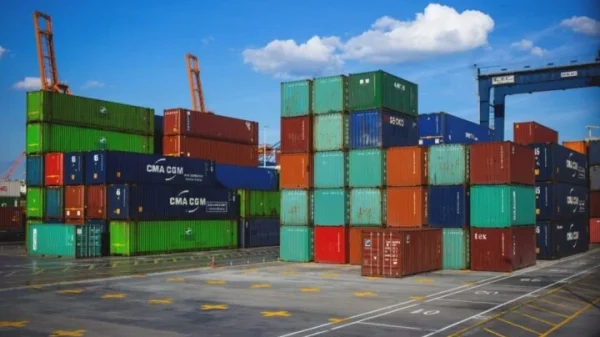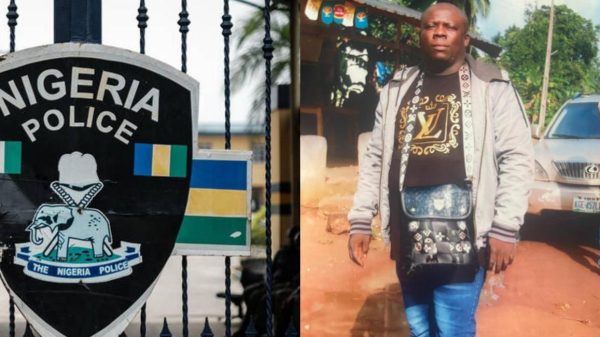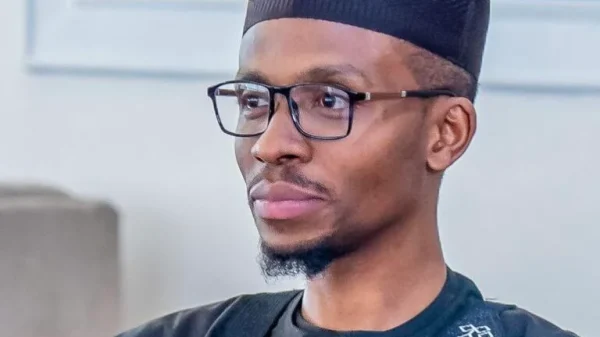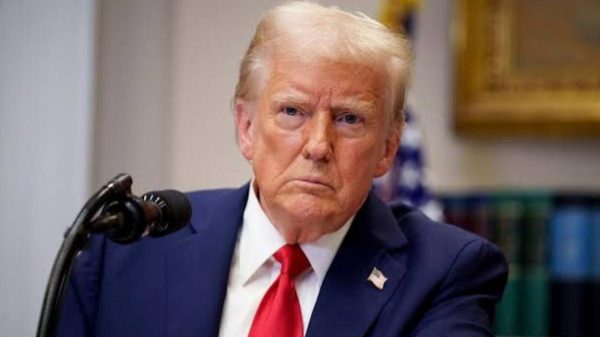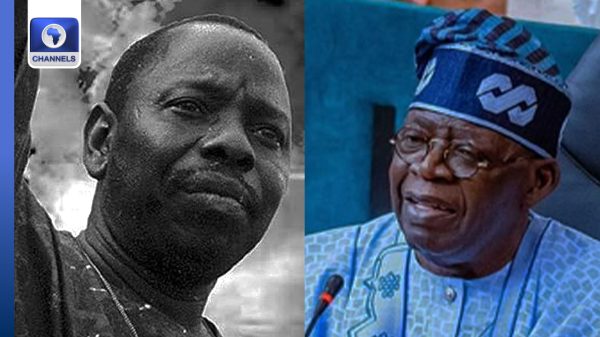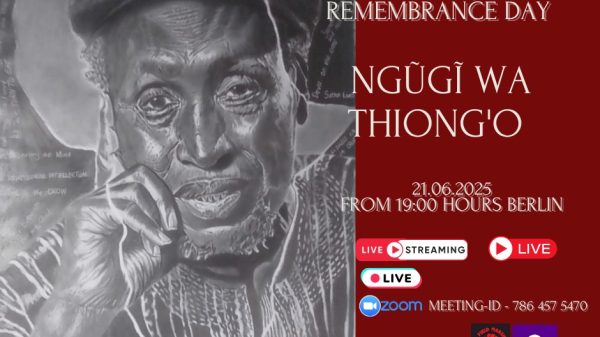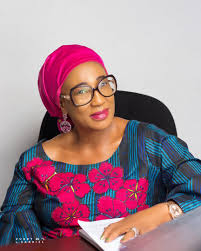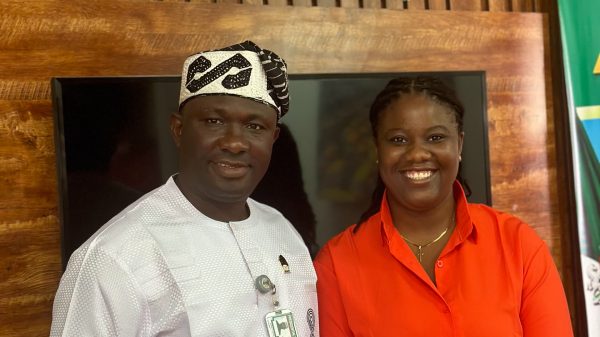The Chairman, House Committee On Diaspora Affairs, House Of Representatives Hon. Sir. Tochukwu Okere, has said that the primary objective of ECOWAS module for economic prosperity of the sub-Saharan Africa though laudable has not been entirely successful. He said that the loss of focus is responsible for the apparent multidimensional poverty and fast expanding insecurity in the sub-region. In view of these glaring realities, it may not be defective to argue that ECOWAS has essentially failed to accomplish its most primary objective which is to foster intra-community trade.
Speaking on Trade Conundrum: Expanding Understanding Of ECOWAS Module as Catalyst To Prosperity In Sub-Saharan Africa during the 15th Anniversary of Nigerian Eye Newspaper Lecture in Accra Ghana. He said the revised Article of the Commission in 1983 clearly stated that the Commission was founded to “promote co-operation and integration, leading to the establishment of economic union in West Africa in order to raise the living standards of its people, ensure growth, foster relations among member states and contribute to the progress and development of the African continent.” “If truly this was the intention of the founding fathers why has no determined step been taken to accomplish it? This is my concern and I believe the concern of the organisers of this forum.”
According to him in 2022, the total trade volume, including imports and exports, intra-community trade in the ECOWAS region totaled mere $277.22billion according to data sourced from Trade Information System (ECOTIS). This volume of trade according to the President, Economic Community of West African States Commission, Omar Touray was considered far below the sub-region’s estimated trade potentials. He observed that this intra-community trade that stood at 12 per cent compared to other regions that were fully integrated and that have consistently recorded as high as 60- 70 per cent in intra-community trade is clearly unacceptable.
He said that curiously, reports has equally indicated that Nigeria alone in the last 27 years has recorded an annual volume of 20.1% from $151million in 1995 to $21.4 billion in 2022 in imports from China and volume exports from Nigeria to China in 2022 stood at $1.5 billion. In 2023, total volume of trade between Nigeria and China stood at $22.6billion. In the same vein, the volume of China’s exports to Ghana in 2023 was $9.23 Billion. During the same year the United Kingdom volume of trade with Nigeria was 7.1Billion pounds and her trade with Ghana was 1.2 billion pounds. This is huge compared to only N2.41 trillion naira between Nigeria and the whole ECOWAS bloc consisting of 14 other countries in the same year, according to Nigeria Bureau of Statistics. This volume of trade with China and UK alone would have impacted meaningfully in the lives of the ordinary citizens of the sub-region if only 60% of the trade was transacted within sub-regional market
“What this statistics has shown is the huge disparity in volume of trade among ECOWAS member states. It equally indicts the countries for preferring to trade outside the union whereas the 15 Member Union ostensibly founded in 1975 was to among other things foster trade amongst members and ultimately the prosperity of the sub-region. This foundational imperative has been neglected over the years and the Commission appears to have shifted focus to politics from the economic welfare of her citizens and consequently the loss of huge sub-regional market of estimated population of 449,788,443 as at 29th May, 2024 according UN report. This single regional market is more than the population of the biggest economy in the world, the United States whose 2023 population stood at about 339,996,463. I therefore very willingly acquiesce with the central theme of this conversation aptly captured as “Trade Conundrum”.
He added that a look at the United Nations Economic Commission for African 2022 report will weaken our optimism about the Commission and of course bring to the fore the immediate and latent consequences of its inaction.
“The report specifically noted that ‘social development remains a challenge for most of the West African countries as evidenced by the performances score under the thematic area which is below 50% for 80% of the ECOWAS Member states.’ Several scholars have equally argued that ‘development indicators baseline data collated on ECOWAS Member States show a rather low level of development’.”
According to him to take this argument further, the United Nations 2021 Human Development Report reveals that among the 193 countries ranked, only Equatorial Guinea, Sao Tome and Ghana ranked 133, 141 and 145 respectively, the rest in the West African sub-region averaged between 161 and 185 with majority ranking between 173 and 189 just 4 countries ahead of some globally acclaimed failed states. “Curiously, Afghanistan and Yemen classified as failed states ranked 182 and 186 respectively ahead of Mali that ranked 188 and Niger 189. It may also interest us to know that Burkina Faso and Sierra Leone were ranked 185 and 184 respectively while Nigeria the biggest economy in the sub-region was ranked 161 among 193 countries. It could be argued that if the ECOWAS module was incentivized the report would have been different.
“The 2024 HDI report is not different. Switzerland and Norway maintained the lead positions of 1st and 2nd respectively while among West African countries, only Ghana and Sao Tome made significant improvements from 145 in 2021 to 133 and 141 to 138 respectively. Sadly, Mali, Niger and Chad maintained their bottom position on the table, occupying 186,189 and 190 respectively among 191 countries examined. This is a sad reality and I do not wish to be dragged into the argument of whether ECOWAS a module for prosperity failed or not to avoid “speaking in tongues” in order to deodorize the obvious. Let the report provide the answer.”
He said that the big question that stares all of us in the face is how we can change the narrative. “In my opinion that is the reason that we have gathered here today. In my candid consideration, it will be helpful to broaden the conversation beyond the semantics of political correctness to the critical issue of telling ourselves the hard truth of leadership failures among sub-Saharan African leaders, who have failed to take core issues of human capacity building, industrialization, mass education and provision sufficient energy as foundational basics that would booster productivity and subsequently trade instead of their seeming unquenchable appetite for accumulation and consolidation of power amidst mass poverty and disease.”
He said that to break this conundrum and to catalyze trade in the sub-Saharan Africa, Omar Touray has made some valid arguments and he was inclined to align with his submission. He had recommended that in the first place, ECOWAS Member States should produce more and export more of its goods to booster intra-community trade. Secondly, that Member States should open their market to produce from Member States instead of building restrictive and discriminative measures against such products as long as the meet certain sub-regional standards.
“To produce more and export more, he argued that Member States should develop local capacity and industrialize so that volume of trade can grow unhindered, and lastly, that Member States should build enough local content which ultimately will booster innovation and standards. I completely agree with his submission.
“In conclusion, besides aligning myself with recommendations canvassed by Mr. Touray as the way out of the conundrum, would like to posit for the umpteenth time that our leaders have not given enough impetus for the sub-region to harness its abundant human and material resources to catalyze development and enhance the wellbeing of their citizens. To lift the people out of poverty and disease is not rocket science; to mitigate insecurity in the sub-region is equally not a prayer point because God in his infinite mercies has given the sub-region all that it requires to improve livelihood. A leadership that harnesses our vast positive potentials and aligns the welfare of her people with governance is very imperative and all that is needed to break and demystify the trade conundrum in Sub-Saharan Africa.”
The event featured keynote speakers like Hon. Abla Dzifa Gomashie, Member of the Ghanaian Parliament representing Ketu South. Hon. Gomashie highlighted the importance of trade and investment in promoting prosperity in Sub-Saharan Africa.Other notable speakers and guests includes UN Goodwill Ambassador NanaHemaa Obaapa Awindor,EU Goodwill Ambassador Victoria Michaels and Goodwill Ambassador to the State of Georgia USA Davisha L Johnson. Jouvence Babagbeto the founder of Eagle Vision Institute,president of All Nigeria Community Ghana Dr. Bayor Albert Asaolu and Prince Everest Nwankwo of Nigerian Union of Traders Association Ghana. Madam Cecilia Eteng represented the Nigeria High Commission Ghana.
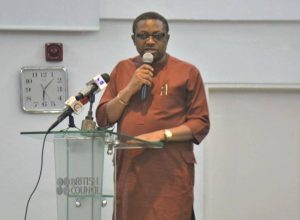
Hon.Tochukwu Okere



